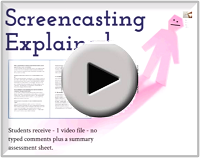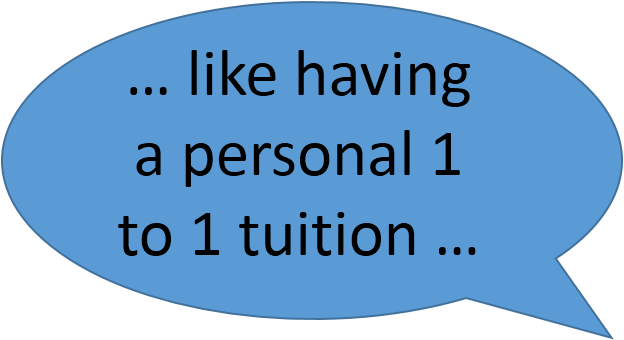
-
Games for Health UK Conference at Coventry – 14th May 2014
 On Wednesday 14th May I attended the Games for Health UK conference, held at Coventry University’s Simulation Centre. This was a satellite event linked to Games for Health Europe, which is an organisation based in Amsterdam.
On Wednesday 14th May I attended the Games for Health UK conference, held at Coventry University’s Simulation Centre. This was a satellite event linked to Games for Health Europe, which is an organisation based in Amsterdam.Jurriaan van Rijswijk spoke first, talking about Games for Health’s vision of using games as a way to change education, promoting active learning and behavioural change. As an organisation they want to help game creators in institutions to share their work more widely. He also said that the ‘Games for Health’ book that they had published, which contained proceedings from their 3rd annual conference, encouraged people to take the organisation more seriously.
Next, Sebastian Yuen talked about wearable technology and how this can be used to change patient behaviours. He was able to talk about his own experience using Fitbit and talked about the possibilities around using badges.
Charlotte Lambden who is a Research Therapist at Newcastle University spoke about a game that they had developed to help with the rehabilitation of people such as stroke victims. It is called Limbs Alive and encouraged people to perform a range of movements and tasks, helping the patient see their progress.
Paul Canty from Preloaded spoke about a range of games for health. You can explore further on the Games with Purpose and Games for Change websites, but examples were FoldIt, Family of Heroes, The Walk, Dys4ia, Actual Sunlight, and Touch Surgery.
Pamela Kato talked about the future of games for health. She says we need research to help us understand if games work, for whom, when and how. We need quality games, and distribution channels so there are places where people know that they will find high quality games. She also gave advice on making games saying to be precise about what you want when dealing with game development studios, because they cannot do your job as a medical professional or academic. She was keen on people hiring artists to work on the game to make them look better, and including the target group in development at each stage to make sure there is nothing that would prevent that group using the game. Games she mentioned were Re-Mission 2, and Plan-It Commander.
Jamie MacDonald from Fosse Games shared from his long experience in the games industry, again pointing out the importance of quality and customer recommendations in making a game a success. He said a key area to look at is innovation. This can be leading in new categories of games, with new audiences, and in using new hardware, but it can also be smaller scale evolutionary innovation within an existing genre.
Finally Adrian Raudaschl spoke about gamification, John Blakely spoke about games to improve the training of Junior Doctors, and Alex Woolner about growing Games for Health UK.
Over all I was impressed by the organisation and its aims. There was a focus on the importance of producing quality games, and on sharing games that have been created. Because of the cost of creating quality games, the reuse and sharing of what has been created seems vital if the use of them is to grow and make the investment worthwhile.
It is certainly going to be useful to keep in touch with what is going on in this organisation, to know what sort of educational games are being created and how people are using them in health contexts.
Peter Beaumont
Learning Technology Development Officer
-
Screencasting Formative Feedback
How one tutor increased students’ engagement with feedback.
 In this video blog post Carl Simmons explains why assessment is so problematic and suggests how tutors can increase the amount of useful information that students receive using screen and voice recording software.
In this video blog post Carl Simmons explains why assessment is so problematic and suggests how tutors can increase the amount of useful information that students receive using screen and voice recording software.The issues are:
- Good quality feedback consumes significant tutor resource;
- Students tend not to use the qualitative feedback comments.
Carl replaced traditional feedback (handwritten comments / annotated Word documents) with videos of each students’ script, adding an audio recording of himself talking about the work – a ‘screencast’.
Results indicate that students both use this feedback more than traditional text comments – and feel that the assessor has their best interests at heart, providing a motivational boost.
 The students engaged far more readily with the screencast feedback – often viewing it more than three times. There was also a perception that the feedback took significantly longer to produce – yet Carl found creating the screencasts took him about the same length of time as previous methods.
The students engaged far more readily with the screencast feedback – often viewing it more than three times. There was also a perception that the feedback took significantly longer to produce – yet Carl found creating the screencasts took him about the same length of time as previous methods.Carl’s approach is significant because many studies indicate increasing student engagement with qualitative feedback improves students’ outcomes.
Carl has created a screencast that outlines the technique and discusses how he analysed the data. Potential issues are also identified, such as raising students’ expectations. Here’s the link: http://youtu.be/P5R69BvjJDI
Your next steps?
Create a screen cast of your own – perhaps marking an exemplar piece – unpacking the reasoning behind the piece’s grade.
Carl would be delighted to speak to colleagues, both at Edge Hill and beyond to give help and advice to those considering using this screen casting technique. Further, perhaps you might be able to add to the research data – seeing if the results you get are similar to those already observed.
 Carl Simmons
Carl Simmons
Senior Lecturer
Faculty of EducationTelephone: 01695 650916 x7916
Email: [email protected]For further help, support and advice on how you can use screen casting or any other TEL tools, please contact your Learning Technologist (see the Faculty Contacts on this page) or email the LTD Team on [email protected] or 01695 650754 (x7754). Or – you just ‘do it’ with my favourite FREE service: http://www.screenr.com/.
-
Learning Edge Upgrade Success!
The scheduled summer upgrade has been completed successfully and you can now login to Learning Edge as normal.
The upgrade introduces a number of improvements – most significantly a new true student preview and anonymous & delegated grading options.
Where can you learn more?
As mentioned in a previous blog post, the LTD team will be hosting an online webinar (via Collaborate) at 2.00pm on Wednesday 23rd of July and Thursday 24th July. These sessions will introduce you to what’s new, provide you with an opportunity to ask questions and help you explore where and how to make the most of the new improved system.
Please Feedback
Take your time to explore the upgraded system and let us know what you think.
The LTD team have worked hard to test the upgrade so we are not expecting any unexpected behaviour! However, if you do spot any problems please let us know asap so we can investigate and get them resolved for you.
Contact the Learning Technology Development team to share any queries or comments you have regarding the upgrade or the online webinar– leave a comment below, email [email protected] or call 01695 650754.
Meg Juss
Learning Technology Development Manager


